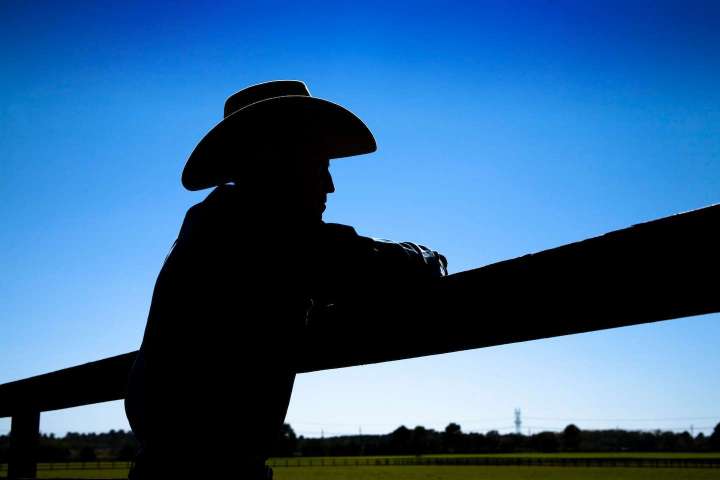Maddy Butcher is the author of “Beasts of Being: Partnerships Unburdened” and director of the Best Horse Practices Summit.
To not comment: The pros of rural reticence

It wasn’t long — maybe a week later — when I realized I’d been foolish and hasty in my understanding of the facts. I confessed as much to my friend. He said, “Oh?”
In the rural West, quiet reserve is an essential skill and a fading art form, lost on people, like me, who rush to react and to be heard. Inevitably, it is rapidly losing ground to a louder, vainer way of being.
The change has probably been under way for generations and the digital age has quickened it. While online memes and political salvos monopolize people’s attention and influence behavior, the more contemplative, measured mind-set typically found in ranch and farm country takes on fresh appeal. I’m learning that there’s value in observing, taking stock and reserving judgment while a day or season runs its course.
Writing last month for the Boston Globe, Todd Washburn, a Harvard professor and the university’s former assistant provost for international affairs, observed that “scholars have found that highly educated Americans are central to the political polarization that is fracturing our country … clustering tightly around just a few urban centers.” This population, he noted, is seldom communicating with anyone who disagrees.
We bemoan these kinds of silos. But what about the kind you see rising up on a flat horizon, beacons of productivity and filled with hard-won harvests?
Curtis Moore knows both worlds. He grew up in the small town of Bishop, Calif., and spent his summers packing mules in the Eastern Sierras. Later, he cowboyed at a nearby ranch before becoming a lawyer who deals with natural resource conflict resolution. He likes to cite Aldo Leopold, who wrote, “Is education possibly a process of trading awareness for things of lesser worth?”
Moore told me he’s careful to check what he knows academically against what he sees in front of him at any given moment, whether in a conflict-resolution meeting or when working with a new horse.
Erin Nissen is a fourth-generation farmer in the San Luis Valley of Southern Colorado. Her family harvests a million pounds of potatoes each year. I asked for her thoughts on online acrimony and she laughed, saying, “My dad thinks if only people worked longer hours, they wouldn’t have time for the nonsense.”
She noted that most people are generations removed from their farming and ranching roots. In 1900, 41 percent of the U.S. workforce was employed in agriculture. A century later, that number had fallen to less than 2 percent.
“I tend to study, sit back, listen, watch. It’s a calmer way of doing things,” she said. “That’s a pretty common thing in ag, although water meetings can get heated.”
Not all water meetings and not all Westerners are quiet and mindful, of course. I live in a county, after all, that helped send Republican Rep. Lauren Boebert to Washington.
And not all Easterners are pushy and opinionated. My friend’s “oh” is an alternative to “ayuh,” a Maine expression endlessly parodied but one that is beautifully reflective, rather than reflexive. Growing up on the Maine coast, I heard it a lot, especially from fishermen, lobstermen and carpenters.
Before he wrote “Charlotte’s Web,” E.B. White moved from New York City to Maine and worked a farm, raising sheep, chickens and crops. In “One Man’s Meat,” he wrote that farmers were “impressed by education, but they have seen too many examples of the helplessness and the impracticality of educated persons to be either envious or easily budged from their position.”
Fence-sitting — literally sitting on the fence and watching animals, feeling the wind shift, smelling the sage after a hard, fleeting rain — is not a waste of time. It’s honorable listening that can inform one’s worldview more than any tweet thread. No fence? You can find this kind of social engagement in the city: Watch birds on a wire as they tilt their heads (looking for predators), scrape their beaks (after eating, or after feeding their young), flit away and return.
“Doing all the time creates problems,” Joe Morris, a rancher in central California, told me. “You really need to observe, learn, listen, then respond. There are teachers everywhere — all you need is students.”
Don’t call me a romantic. There is little romance in my work of bucking bales in July heat or shoveling manure in February rain. But there is quietness. Like the white space of an elaborate print design, it can be refreshingly satisfying.






